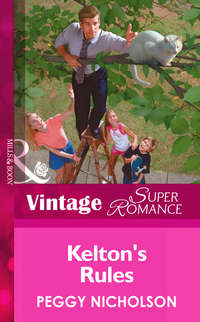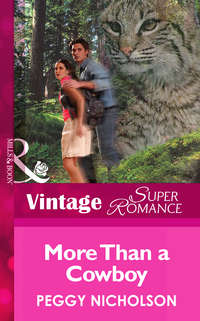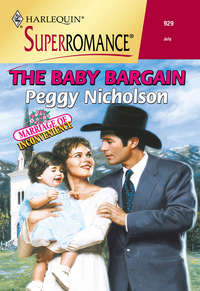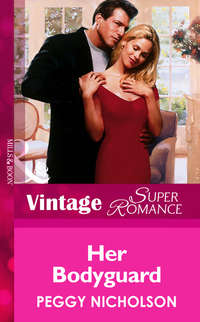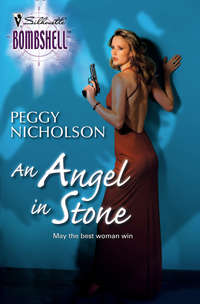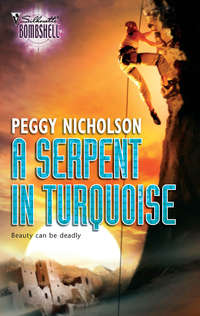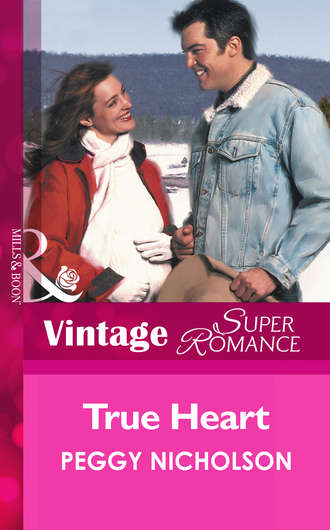
Полная версия
True Heart
Lying on her bed, she bit the sleeve, her nose brushing its fuzzy nap. Oh, Mama, what now? To come home—and find it yanked out from beneath her feet just when she needed it the most! Tears trickled down her cheeks. She flung her forearm across her eyes, mopping up the flow, shutting out the awful day. Sleep now, figure it out later.
SHE LAY ON HER BED, listening to the approaching engine—a shiny black hearse idling into the backyard. Whitey sat behind the wheel, with her father riding shotgun—same way they’d always driven the ranch truck. They’d come to tell her about her mother’s fall. “Too sassy,” Whitey said. “That was always her problem. If she could have saddled a locomotive, she’d have tried to ride it.”
Her father nodded bleakly.
“We thought we’d take your baby, too,” said a man dressed in a doctor’s green surgical scrubs and mask, coming in the kitchen door behind them. “That’ll save a second trip.”
“Aaah!” Kaley sat up, heart lurching, breath coming in terrified pants. “Oh…” She stared around her old bedroom. Horrible dream, somehow worse for its silliness. She pulled in a shuddering breath and tried to hold it. Let it out in a gasp. Couldn’t have been asleep for long—the angle of sunlight slanting across the windowsill had barely changed. “Only a dream,” she muttered, rubbing her stomach.
A bad-luck dream.
No! No, not at all. Simply foolishness—nothing but exhaustion and stress.
Knock-knock.
“Whitey?” She swung her legs off the bed and stood—wobbled and caught hold of the footpost.
Knock-knock-knock!
Whitey, of course. Jim had told her he’d been staying in town all this week at his widowed sister’s. They’d had an awful fight when Jim had decided to sell out. After she’d slept, Kaley had intended to drive down and find the old man, tell him to come back, stop worrying, everything would be fine. So he’d saved her the trouble. And this was the reason for her nightmare; she’d woven the sound of his approaching truck into her dreams.
The knock came a third time as she reached the bottom of the stairs. What’s he knocking for? Whitey owned the kitchen—owned them all and the ranch, too, by right of seniority and survivorship. He’d been her grandfather’s hired hand and best friend. Knocking ’cause he’s on his high horse—he’s still mad, she realized, crossing the mudroom. But not with her. She opened the door with a big smile. “Hey, you—”
Not Whitey. Her gaze collided with a chest that was younger, broader, harder, that blocked most of the doorway. With a big fist poised in the act of knocking. Her widening eyes lifted to a face she hadn’t seen close up for nine years.
Tripp.
His hand unfisted and rose on to his face. He touched his scarred cheekbone with his knuckles, then his hand whipped aside, aborting the motion.
That scar like a comet, a shooting star, which he hated and she’d loved. A radiating tracery of fine white lines, starkly vivid now against his reddening face.
Reddening because he knew that she knew the why of that gesture. It was a holdover from childhood, a reflexive attempt to shield his face from the eyes of a stranger, from the eyes of someone he didn’t trust. A sign of surprise and dismay.
I thought I cured you of that.
His hand came to rest on the doorjamb alongside her head. She’d forgotten how much taller he was than she. She’d always loved that about him, his size and strength. “I thought you were Whitey.” Belatedly she realized she was standing there in nothing but her old bathrobe, its coarse fabric stinging skin that had suddenly gone achingly, wincingly, alive.
“Kaley.” Her name came out in a croak, and Tripp shook his head—more wonder than denial. His hazel eyes drifted down over her, were veiled by dark lashes as his gaze dropped to her naked feet.
Under the pressure of that gaze, she stepped back, her hands moving to her belt, instinctively tugging it tighter. She felt her own cheeks go hot. Damn, she’d wanted time to nerve herself for a meeting with him! And she’d gone to bed with wet hair—it must be a mess.
“What are you doing here?” he asked as his eyes traveled back to her face.
He had no right to look at her this way. He’d willingly, ruthlessly, wastefully forfeited that right nine years ago. “Not selling to you, that’s what.” Jim shouldn’t have borrowed from you, and you should have had the decency not to loan! But that was all in the unmentionable past and would stay there. “I’m not selling to anybody,” she amended.
“You’re—? But—” Another wave of ruddy color swept his face. “Now wait a minute!” He advanced into the room and she retreated the way she’d have dodged back from a hot stove—then frowned. She was in no mood to be pushed around in her own kitchen.
“Your brother and I have an understanding,” Tripp growled, reaching for her arm.
She retreated another step. “He didn’t check with me, Tripp.”
“He said you didn’t care. That you’d be delighted to sell. That he had full power of attorney.”
“He does, but he was wrong—dead wrong. I’m not selling.”
Tripp had gone so pale the scar had vanished on his cheek. He caught her shoulders as if to shake her—she narrowed her eyes at him and tipped up her chin. Don’t you dare!
Instantly he let her go. “I sold my—” He tried again for a level tone. “I sold a stallion this morning, Kaley, to raise money for the down payment on this ranch.”
“This ranch isn’t for sale.”
“I can’t get him back.”
“I’m sorry, Tripp, but what am I supposed to do? Give up my home, instead?”
“Yes! It’s not your home anymore. You don’t need it, can’t keep it the way it should be kept, and I can. You damn sure should sell it!”
“Well, I won’t.”
Eyes locked, they glared at each other as if the first to blink would lose all. He’d been twenty-four the last time she’d faced him. Nine years of Colorado weather, the hard, outdoor life of a rancher, had burned the last hint of boyhood out of him, leaving him fined down to taut muscle and hard bone. Unsmiling. Once he would have seen the humor of them facing off like a couple of cursing cats. No more.
Just as her eyelashes shivered, he spun away, looked wildly around the kitchen as if in search of something to smash or punch, then swung back again. “Did Jim explain this to you? This didn’t happen overnight. I bailed him out May before last—loaned him forty thousand for six months.”
“Yes, he told me.” Not two hours ago. Jim had borrowed Tripp’s money and used it to buy early calves in the spring, meaning to fatten them and sell them in the fall. His hope had been to make a big enough profit that he could afford to hire a manager for the ranch, leaving him free to enlist in the air force. “I risked big, yeah, Kaley, but the payoff could have been terrific!”
Could have been. If the price of beef hadn’t dropped through the basement. Had Jim sold at that point, he’d have ended up worse off than he started, by the time he reckoned in feed, labor and overhead. Better to hold the calves till the following fall and pray their price would rise.
“But he couldn’t pay me off come roundup,” Tripp continued. “So I let the loan ride for another year.”
“That was very…considerate of you,” she admitted.
“Considerate! What were my choices? Calling my loan and ruining your brother, since he hadn’t a hope in heaven of paying? Or doing without money I could have used myself for another year?”
He’d been extremely generous—or extremely crafty. Ruthlessly foresighted. Because Tripp hadn’t simply let the loan ride—he’d forced Jim to sign a further contract. “You may have done without your money for a year, but it bought you a first option on our land.” An option to buy, if ever Jim decided to sell. Tripp had an unbreakable right of first offer, first refusal.
“You’re blaming me for that?” He advanced on her till he stood towering over her. “What was I supposed to do, Kaley—give your brother a free ride for your sake? For auld, sweet lang syne?” His hand rose until the tip of his callused thumb touched the corner of her mouth, then his thumb stroked up across her cheekbone and feathered away. “You think it meant that much to me? Forty thousand dollars’ worth?”
The taunt stung like a lash. His touch burned—it wasn’t a caress but an insult. He was using his bulk to intimidate her. She hit out blindly, fighting for space. “Or to me?” Do you think you meant that much to me?
“Hey, if I ever thought that, you set me straight a long, long time ago,” he jeered softly. “How long did it take you to find a new man?”
As if she’d been the one who hadn’t cared? Who’d broken the faith. She threw the answer back in his face. “Two months!” Richard had found her in Europe two months after Tripp’s letter had broken their engagement, leaving her stranded and heartbroken in a strange land. Two months, though it had been another ten before she’d agreed to marry.
“Fast work, hotshot.”
She’d had enough. “You want fast? Let’s see how fast you can get out of my kitchen—off my land!”
His head rocked back an inch as if she’d slapped him; a muscle ticked beneath his scar. He didn’t budge.
If he didn’t back off, give her room to breathe, she’d go wild. She prodded his chest with a forefinger. “I said…out!”
He looked for a moment as though he’d explode—then his anger sucked inward. “Big words.” He brushed her hand aside. “You order your husband around like that? Wear the pants in your family, do you, cowgirl?”
“I don’t!” She shook her head, but she couldn’t deny something had gone wrong with her marriage. Or had never been right.
“Wear spurs when you ride him? Mexican rowels?”
From out of nowhere the image arose of her on top—sobbing, laughing, rising and falling like a rider on a bronc, while Tripp’s big hands cupped her, caressed her, guided her, clamped her to him as he arched—no eight-second ride that one. Walled off in the back of her mind for nine years, the image hadn’t been softened or fuzzed by review. It was as vivid as if they’d made the memory only last night. Her body throbbed and tightened; her nipples rose against her robe’s coarse fabric. “Out!” she whispered, eyes watering with the heat of her blush. Tired as she was, she was no match for him. Not for him and her memories, too.
He shook his head. “We have to talk this through, Kaley.”
Her voice cracked with startled laughter. “You call this talk? And whatever it is, no, we don’t. Not this minute. I haven’t slept in two days, Tripp.” Damn. Pleading for mercy. Where was her pride?
Somehow her weakness reached him, where resistance had not. His eyes narrowed, focused on her face in a different way—seeing her in the present, perhaps, instead of the past? He opened his mouth on a question, then shut it again and nodded. “All…right. That’s fair enough.”
When had he ever been fair? But ask that, and she’d launch them straight into round two. She didn’t want to fight; she wanted to creep upstairs and collapse.
“Then I’ll see you tomorrow,” he added, when she didn’t speak.
Not if I see you first! She turned her back on him and stood hugging herself, tears of sheer exhaustion springing to her eyes.
Behind her, she heard him let out a deep breath, almost a sigh. Then his boots moved lightly to the door, and it closed behind him.
Still she stood, too tired to move. His engine muttered off toward the ridge…died away to…nothing.
The silence crept back and embraced her.
CHAPTER FOUR
“EEEASY, SUNNY. ’Atta boy,” Kaley murmured, backing the little chestnut down the trailer ramp. When his hooves reached solid ground, she rubbed his warm red shoulder while he snorted and shook his shaggy head. “Good fella.” The chunky quarter horse was the most docile ride of Jim’s string. On this, her third day home, Kaley was still taking it slow, working up to her brother’s hard cases. She tightened the gelding’s saddle cinch, then tied him to a tree at the side of the unpaved turnaround that marked the end of the logging road and trailhead to Sumner’s Peak.
Five miles up-mountain, on the far side of the forested ridge, lay Sumner line camp, headquarters for the Cotter cattle’s summer range. She’d chosen to drive an extra seventy miles round this spur of the mountains, bringing the trailer as close to the camp as she could, rather than ride the direct route from the southeast, which would have meant a trek of some thirty miles as the crow flies. Her thighs weren’t up to that yet. Neither did she care to stop overnight in the line cabin, as that longer ride would have required.
Just find Whitey and bring him home; that would be sufficient unto this day. She collected her hat and Levi’s jacket from the ranch truck’s cab, then turned to her mount. What the old man must be feeling, to have retreated as far as the line camp! He was seventy-two this year. Too old to wake up and find himself without a home.
“Not a good feeling,” she informed the chestnut as she swung her leg over the saddle and urged him toward a gap in the trees. Her heart ached for the old man. She knew precisely how he felt.
Yesterday she’d gone looking for Whitey in Trueheart. A day late, but after her disastrous encounter with Tripp, she’d slept the clock ’round, and woken at noon.
By the time she’d eaten lunch, then yawned her way into town, it had been nearly three. Then she’d lost another hour at Emma Connelly’s, eating homemade cherry pie and listening to the old woman’s complaints.
Whitey’s elder sister had been widowed for twenty-three years. Time enough to decide that she knew precisely what shelf of the refrigerator the butter belonged on, and exactly in what order she cared to read the sections of the Durango Herald. At seventy-six, Emma figured she was old enough to know that a grown man ought to make his own bed, ought to close a box of crackers once he was done with it. And as for her brother’s nasty spit jar for his tobacco chaws? Or that mangy old dog of his?
Whitey had been eating Sunday dinner with his sister as long as Kaley could remember. But apparently sibling affection and forbearance stretched only so far. Emma had never imagined herself saddled with her brother full-time, any more than Whitey had pictured ending his days without a job, cooped up in town.
By the fourth day of his self-imposed exile he’d retreated from Emma’s guest bedroom to an army cot in her drafty garage. Three days later there’d been the final blowup—something about Whitey’s attempt to do a load of his own laundry, Emma’s unimpeachable, but roundly ignored, advice about never mixing blue jeans with white shirts and red bandannas—and Whitey had packed his duffel, growled something about the line camp and stalked out. Emma doubted she’d see him before the snow flew, if then, stubborn old coot.
Considering that she’d had tears in her eyes when she’d said this, Kaley couldn’t find it in her heart to blame the woman. Because even in good times, Whitey was best taken with a large dose of wide-open spaces. Given the claustrophobic confines of a spinster-fussy cottage festooned with crocheted lace doilies and silk flower arrangements, and considering what must be his present mood of black despair, Kaley was sure he’d have tried a saint, much less his loving sister.
Kaley only hoped that he wasn’t driving the cowboy up at Sumner camp half-crazy, too. Adam Dubois. Kaley had never met the man. He was a stranger Jim had hired in the spring, and who knew how patient he’d be with an unexpected guest, especially when that guest was an elderly, endlessly opinionated cowboy. Line camp men took jobs in the high country for a reason. As a breed, they tended to be loners, happiest without company.
And even if—faint hope—all was bachelor bliss above, Whitey was too old for these remote and rugged mountains. He needed his own soft bed in the little house Kaley’s grandfather had built for him forty years ago out back of the barn. Needed a propane heater at night, a hot bath when he wanted one, decent meals and proximity to somebody who cared for him.
So here she was. Kaley ducked under a low-hanging branch and tightened her knees; the chestnut surged uphill, ear tips almost touching with alert interest, hooves clopping softly on the dirt trail. It was nearly noon now, though she’d left the ranch at dawn. Assuming that she’d find Whitey in camp, rather than have to hunt him down out on the mountainside, still they’d be driving bad roads home in the dark.
Of course there was one advantage to this. She’d miss Tripp again.
She’d managed to duck him all yesterday. He’d come by once while she was in Trueheart and left her a note on the back door. Just four brusque words: We’ve got to talk.
Then he’d returned after supper. She’d seen him from the slope of Cougar Rock Pasture, where she’d walked out to admire the sunset. Standing motionless under the trees, she’d watched Tripp hammer on her back door, then open it. She’d clenched her hands to fists at that. Thinks he owns the place already? They would have to talk.
He’d emerged in a minute, apparently satisfied that she wasn’t hiding within, to stand glaring around the property.
He’d stalked to the barn, no doubt figuring she was feeding the horses or chickens, then moments later he’d reappeared, a tall, unmistakably masculine shape in the gathering dusk, broad of shoulder, narrow of hip, turning slowly on his long horseman’s legs, staring out across the darkened pastures and slopes that he meant to own.
She should have gone down to him. No use making things any rougher between them than they already were. Not when, thanks to her brother, Tripp had her dead to rights.
She couldn’t bring herself to smile and do it. Not yet.
She needed time to get the bitter pill down and keep it down. Bitterness piled on top of old bitterness, but still, there it was. Thanks to Jim she owed him. Owed him big-time. All the wishing in the world wouldn’t change that, any more than it had changed his mind nine years ago.
Tomorrow she’d have to face him and work something out.
But that was tomorrow, and today was today, Kaley reminded herself, squaring her shoulders. Today the sky was a color of high-altitude cobalt that Phoenix, with its streams of glittering, smog-belching traffic, would never match. Breathing deep, the cool air fragrant with pine, she tipped her head back to watch a black dot against the blue—a golden eagle, wheeling high above the granite pass toward which Sunny was climbing. She smoothed her palm round and round the top of her saddle horn, and laughed aloud. Oh, I’m home all right! However uncertain and terrifying her future, the present was sweet as wine. Kaley Cotter and daughter are home again.
THE LINE CAMP STOOD in an alpine meadow, starred with late-blooming asters and goldenrod, encircled by the shivering gold of turning aspens. A one-room log cabin built by Kaley’s great-grandfather and added onto by every generation of Cotter since—a lean-to here for feed and tack, a shed for wood there, a rough pole corral that fenced in a small vegetable garden, keeping the crops safe from marauding cattle, if not the rabbits and deer.
Three horses lazed at the far end of the pasture, in the shade of the trees. They lifted their heads and whinnied as Sunny trotted down the slope toward the cabin, then went back to their grazing. The line man would have five horses in his string, at least, Kaley figured. If two were missing, then he was out prowling the meadows. And Whitey must be, too, on a borrowed mount, since he’d driven his rattle-trap pickup to the trailhead and left it there.
She tied off Sunny and knocked on the screen door. “’Lo the house!”
Something stirred beyond the sun-spangled, rusty mesh.
“Anybody home?” When nobody answered, Kaley opened the door.
Lying in a bunk against the far wall, Whitey heaved himself to his elbows and blinked. “Kaley?” He swiped a gnarled hand across his unshaven face. “Kaley-girl?”
She crossed the bare, dusty boards in four strides. In all the years she’d known him, Whitey had never slept past seven. “Whitey, what’s wrong?” She knelt beside him and touched his bristly cheek, then cupped a palm to his forehead. “You’re sick?”
“Had a wreck yesterday. Nothin’ t’speak of.”
A wreck was cowboy for a fall. One to speak of. Minor spills didn’t count. “You’re okay?” She checked the urge to whip off the dingy blanket that covered him and see for herself.
“Banged up m’damn knee.”
“Good one or bad one?” A cow had crushed his right knee between a gate and a fence post years ago. He limped badly at the best of times.
His snort was a rueful laugh. “M’good one’s not so good now.” He touched her shoulder, the shy touch of a child. “What’re you doin’ here, girl?”
“Come to bring you home. We’re not selling the ranch, Whitey. Not if I can help it.” She patted his hand, then stood hastily as his eyes glistened. He’d never survive her seeing him cry. With her own eyes brimming, she turned briskly on her heel. “Where’s Chang?”
She spotted the circular heap of frizzy white-and-copper hair, coiled in a battered easy chair that was pulled up to the wood-burning stove. Trust Chang to claim the best seat in the house. “Hey, Chang.” She stooped beside the ancient Pekingese and warily offered her knuckles for his identification.
A wavering growl issued from somewhere within the furry mound, and one brown goggle eye cracked open to regard her with weary malevolence. “Let’s go home, old guy.” The mountains were no place for a short-legged lapdog. “Mellowed a bit, hasn’t he?” she observed when he didn’t lunge for her. Oh, she’d stayed away too long! Even Chang had changed.
“Just losing his teeth and too dang proud to gum you,” Whitey grunted. From the shuffling and groaning behind her, he was struggling into his jeans.
“The hand here—Dubois?” she asked without turning. “Any chance he’ll be stopping back by for lunch?”
“That Cajun? He never shows before dark.”
Meaning that Whitey’s presence was probably proving a strain. Kaley’s eyes wandered to the bunk on the opposite wall from Whitey’s. A book on dinosaurs, of all things, rested on a Mexican blanket tucked to drum-tight perfection. “Too bad. I wanted to meet him.”
She’d be needing at least two dependable hands to help with fall roundup. Jim had said Dubois could be trusted, but Kaley preferred to see for herself. Some cowboys had problems taking orders from women. If that was going to be an issue, she needed to know sooner rather than later.
She scratched Chang’s tasseled ear and stood. “Guess I’ll go catch you a ride.” She supposed they could leave Dubois a note, telling him to collect Whitey’s mount, which they’d tie off at the trailhead. “Any preferences?”
Whitey grunted. “Shot my preference yesterday. That grullo your dad used t’ride. Ol’ fool stepped smack in a badger hole.”
Kaley winced. Hence Whitey’s wreck and his taking to his bed. More sadness than jarred bones, she’d bet—one more connection with her father gone forever. Apart from which, nothing hurt worse than to shoot a good horse. “I’m sorry.”
“Huh! No sorrier than he was.”
RIDING ACROSS the flowery pasture, Kaley held a coffee can of grain balanced on her thigh. She reined in Sunny and rattled the oats against the tin. “Who wants to work today?”
A couple of glossy equine heads lifted from the grass, but she had no takers. The sun-burned black grabbed a green mouthful, turned a casual quarter turn as he grabbed another bite, till, apparently without intention, he ended facing toward the trees. He glanced back at her over his rump, chewing insolently, ready to bolt. And the others looked as if they’d take their cue from him. “Come on, you bum.” She rattled the oats seductively.
“Which one do you want?” called a masculine voice behind her.
Her thighs clamped together in startlement and Sunny jumped, then steadied as she reined him in again and looked over her shoulder. To find Tripp, his big white-faced bay carrying him down the meadow at a half trot. He was building a loop in his catch rope already. “The paint,” she said, her voice steadier than her heartbeat. Think of the devil and here he came riding!


